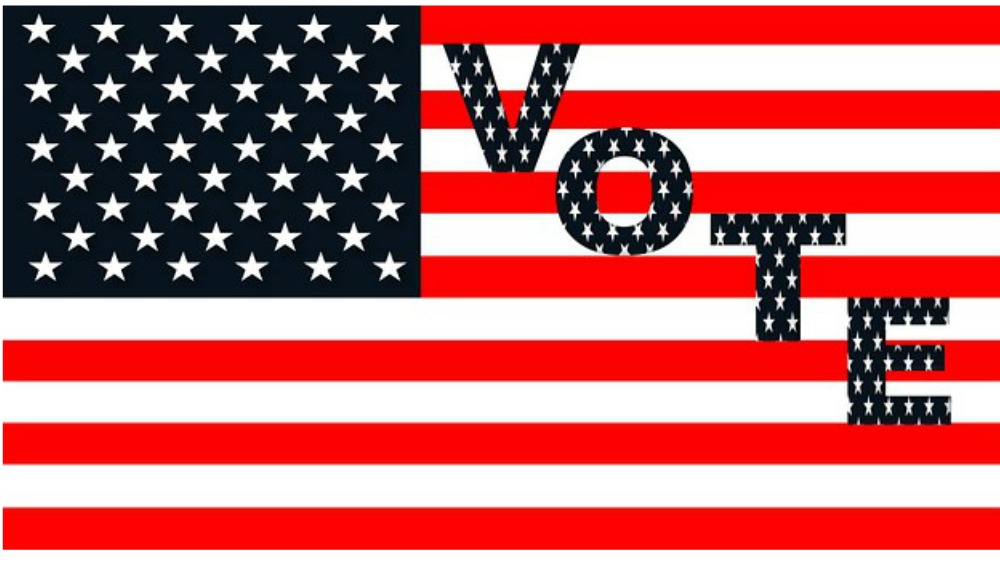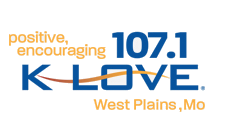
Missouri Election Issues November 2024
Official Ballot Title
Amendment 2
Proposed by Initiative Petition
Official Ballot Title:
Do you want to amend the Missouri Constitution to:
- allow the Missouri Gaming Commission to regulate licensed sports wagering including online sports betting, gambling boats, professional sports betting districts and mobile licenses to sports betting operators;
- restrict sports betting to individuals physically located in the state and over the age of 21;
- allow license fees prescribed by the Commission and a 10% wagering tax on revenues received to be appropriated for education after expenses incurred by the Commission and required funding of the Compulsive Gambling Prevention Fund; and
- allow for the general assembly to enact laws consistent with this amendment?
State governmental entities estimate onetime costs of $660,000, ongoing annual costs of at least $5.2 million, and initial license fee revenue of $11.75 million. Because the proposal allows for deductions against sports gaming revenues, they estimate unknown tax revenue ranging from $0 to $28.9 million annually. Local governments estimate unknown revenue.
Fair Ballot Language:
A “yes” vote will amend the Missouri Constitution to permit licensed sports wagering regulated by the Missouri Gaming Commission and restrict sports betting to individuals physically located in the state and over the age of 21. The amendment includes a 10% wagering tax on revenues received to be appropriated for educational institutions in Missouri.
A “no” vote will not amend the Missouri Constitution regarding licensed regulated sports wagering.
If passed, this measure will have no impact on taxes.
Official Ballot Title
Amendment 3
Proposed by Initiative Petition
Official Ballot Title:
Do you want to amend the Missouri Constitution to:
- establish a right to make decisions about reproductive health care, including abortion and contraceptives, with any governmental interference of that right presumed invalid;
- remove Missouri’s ban on abortion;
- allow regulation of reproductive health care to improve or maintain the health of the patient;
- require the government not to discriminate, in government programs, funding, and other activities, against persons providing or obtaining reproductive health care; and
- allow abortion to be restricted or banned after Fetal Viability except to protect the life or health of the woman?
State governmental entities estimate no costs or savings, but unknown impact. Local governmental entities estimate costs of at least $51,000 annually in reduced tax revenues. Opponents estimate a potentially significant loss to state revenue.
Fair Ballot Language:
A “yes” vote establishes a constitutional right to make decisions about reproductive health care, including abortion and contraceptives, with any governmental interference of that right presumed invalid; removes Missouri’s ban on abortion; allows regulation of reproductive health care to improve or maintain the health of the patient; requires the government not to discriminate, in government programs, funding, and other activities, against persons providing or obtaining reproductive health care; and allows abortion to be restricted or banned after Fetal Viability except to protect the life or health of the woman.
A “no” vote will continue the statutory prohibition of abortion in Missouri.
If passed, this measure may reduce local taxes while the impact to state taxes is unknown.
Official Ballot Title
Amendment 5
Proposed by Initiative Petition
Official Ballot Title:
Do you want to amend the Missouri Constitution to:
- allow the Missouri Gaming Commission to issue one additional gambling boat license to operate on the portion of the Osage River from the Missouri River to the Bagnell Dam;
- require the prescribed location shall include artificial spaces that contain water and are within 500 feet of the 100-year base flood elevation as established by the Federal Emergency Management Agency; and
- require all state revenues derived from the issuance of the gambling boat license shall be appropriated to early-childhood literacy programs in public institutions of elementary education?
State governmental entities estimate one-time costs of $763,000, ongoing costs of $2.2 million annually, initial fee revenue of $271,000, ongoing admission and other fee revenue of $2.1 million annually, and annual gaming tax revenue of $14.3 million. Local governments estimate unknown revenue.
Fair Ballot Language:
A “yes” vote will amend the Missouri Constitution to allow the Missouri Gaming Commission to issue an additional gambling boat license to operate an excursion gambling boat on the Osage River, between the Missouri River and the Bagnell Dam. All state revenue derived from the issuance of the gambling boat license shall be appropriated to early-childhood literacy programs in public institutions of elementary education.
A “no” vote will not amend the Missouri Constitution regarding gambling boat licensure.
If passed, this measure will have no impact on taxes.
Official Ballot Title
Amendment 6
Official Ballot Title:
Shall the Missouri Constitution be amended to provide that the administration of justice shall include the levying of costs and fees to support salaries and benefits for certain current and former law enforcement personnel?
State and local governmental entities estimate an unknown fiscal impact.
Fair Ballot Language:
A “yes” vote will amend the Missouri Constitution to levy costs and fees to support salaries and benefits for current and former sheriffs, prosecuting attorneys, and circuit attorneys to ensure all Missourians have access to the courts of justice.
A “no” vote will not amend the Missouri Constitution to levy costs and fees related to current or former sheriffs, prosecuting attorneys and circuit attorneys.
If passed, this measure will have no impact on taxes.
Official Ballot Title
Amendment 7
Official Ballot Title:
Shall the Missouri Constitution be amended to:
- Make the Constitution consistent with state law by only allowing citizens of the United States to vote;
- Prohibit the ranking of candidates by limiting voters to a single vote per candidate or issue; and
- Require the plurality winner of a political party primary to be the single candidate at a general election?
State and local governmental entities estimate no costs or savings.
Fair Ballot Language:
A “yes” vote will amend the Missouri Constitution to specify that only United States citizens are entitled to vote, voters shall only have a single vote for each candidate or issue, restrict any type of ranking of candidates for a particular office and require the person receiving the greatest number of votes at the primary election as a party candidate for an office shall be the only candidate for that party at the general election, and require the person receiving the greatest number of votes for each office at the general election shall be declared the winner. This provision does not apply to any nonpartisan municipal election held in a city that had an ordinance in effect as of November 5, 2024, that requires a preliminary election at which more than one candidate advances to a subsequent election.
A “no” vote will not amend the Missouri Constitution to make any changes to how voters vote in primary and general elections.
If passed, this measure will have no impact on taxes.
Official Ballot Title
Proposition A
Proposed by Initiative Petition
Official Ballot Title:
Do you want to amend Missouri law to:
- increase minimum wage January 1, 2025 to $13.75 per hour, increasing $1.25 per hour each year until 2026, when the minimum wage would be $15.00 per hour;
- adjust minimum wage based on changes in the Consumer Price Index each January beginning in 2027;
- require all employers to provide one hour of paid sick leave for every thirty hours worked;
- allow the Department of Labor and Industrial Relations to provide oversight and enforcement; and
- exempt governmental entities, political subdivisions, school districts and education institutions?
State governmental entities estimate one-time costs ranging from $0 to $53,000, and ongoing costs ranging from $0 to at least $256,000 per year by 2027. State and local government tax revenue could change by an unknown annual amount depending on business decisions.
Fair Ballot Language:
A “yes” vote will amend Missouri statutes to increase the state minimum wage beginning January 1, 2025 to $13.75 per hour and increase the hourly rate $1.25, to $15.00 per hour beginning January 2026. Annually the minimum wage will be adjusted based on the Consumer Price Index. The law will require employers with fifteen or more employees to provide one hour of paid sick leave for every thirty hours worked. The amendment will exempt governmental entities, political subdivisions, school districts and education institutions from the minimum wage increase.
A “no” vote will not amend Missouri law to make changes to the state minimum wage law.
If passed, this measure will have no impact on taxes.
The following ballot measures appeared on the August 6, 2024 primary election ballot.
Official Ballot Title
Amendment 1
Official Ballot Title:
Shall the Missouri Constitution be amended to allow places where individuals, corporations, organizations, and associations provide childcare outside of the child’s home to be exempt from property tax? This is intended to make childcare more available, which would support the well-being of children, families, the workforce, and society as a whole.
State governmental entities estimate the state’s Blind Pension Fund could have annual lost revenue of up to $400,000. Local governments expect an unknown fiscal impact.
Fair Ballot Language:
A “yes” vote will amend the Missouri Constitution to grant the General Assembly statutory authority to exempt all property, real and personal, used primarily for the care of a child outside of his or her home by general law. An assessing authority may be authorized by general law to exempt from the assessment, levy, and collection of taxes such portion of the property of such individual, corporation, organization, or association that is used primarily for such childcare.
A “no” vote will not amend the Missouri Constitution and childcare facilities will continue to be assessed, levied, and pay taxes.
If passed, this measure will have no impact on taxes.
Official Ballot Title
Amendment 4
Official Ballot Title:
Shall the Missouri Constitution be amended to authorize laws, passed before December 31st, 2026, that increase minimum funding for a police force established by a state board of police commissioners to ensure such police force has additional resources to serve its communities?
This would authorize a law passed in 2022 increasing required funding by the City of Kansas City for police department requests from 20% of general revenue to 25%, an increase of $38,743,646, though the City previously provided that level of funding voluntarily. No other state or local governmental entities estimate costs or savings.
Fair Ballot Language:
A “yes” vote will amend the Missouri Constitution to allow the general assembly by law to increase the minimum funding for a police force established by the state board of police commissioners to ensure such police force has additional resources to serve its communities. Currently the only police force established by the state board of police commissioners is found in Kansas City, Missouri.
A “no” vote will not amend the Missouri Constitution regarding the funding for a police force established by the state board of police commissioners.
If passed, this measure will have no impact on taxes.
In Arkansas
Arkansas Issue 1, Lottery Proceed Funding for Vocational-Technical School Scholarships and Grants Amendment (2024)
Arkansas Issue 1, the Lottery Proceed Funding for Vocational-Technical School Scholarships and Grants Amendment, is on the ballot in Arkansas as a legislatively referred constitutional amendment on November 5, 2024.[1]
| A “yes” vote supports allowing proceeds from the state lottery to fund scholarships and grants for vocational-technical schools and technical institutes. |
| A “no” vote opposes allowing proceeds from the state lottery to fund scholarships and grants for vocational-technical schools and technical institutes. |
What would Issue 1 do?
See also: Text of measure
The proposed amendment would allow proceeds from the state lottery to fund scholarships and grants for vocational-technical schools and technical institutes. Arkansas is one of 45 states that have a state lottery.[2][3]
The state lottery was created through voter approval of Amendment 3 in 2008. At the time of the election, Arkansas was one of eight states that did not have a state lottery. Under the 2008 amendment, lottery proceeds were designed to be used to fund scholarships and grants for students enrolled in “public and private non-profit two-year and four-year colleges and universities located within the state that are certified according to criteria established by the General Assembly.”[4]
How much money has the lottery raised for scholarships since 2009?
See also: Background
Since the Arkansas Scholarship Lottery (ASL) started in 2009, it has provided more than 720,000 college scholarships, awarded $4.6 billion in prizes, given $386 million in retailer commissions, and provided approximately $167 million in state and federal tax revenue. The ASL reported a record-high amount of proceeds in fiscal year 2023, with $114,767,979 in proceeds and $607,561,125 in sales. Since the Arkansas Scholarship Lottery was established in 2009, ASL has raised approximately $1.2 billion in scholarship funds. The funds raised by the ASL are allocated to scholarships managed by the Arkansas Department of Higher Education. These include the Arkansas Academic Challenge Scholarship, the Arkansas Workforce Challenge Scholarship, and the Arkansas Concurrent Challenge Scholarship. During the 2023 legislative session, the state legislature create the Arkansas Challenge Plus Scholarship, which was set to be awarded to students receiving the Academic Challenge Scholarship, based on their financial need, beginning in 2024.[5]
How did this amendment get on the ballot?
See also: Support and Opposition
The amendment was introduced by Republican Representative Robin Lundstrum (R-18). It was approved unanimously in the Arkansas State Legislature during the 2023 legislative session. Speaking about why the amendment was sponsored, Shane Broadway, vice president for university relations for the Arkansas State University System, said, “As we worked on developing the scholarship program, we were told by our attorneys we could not include state-owned vocational-technical schools because they were not included in the definition in the constitutional amendment.”[4]
For a Complete Look at All the Latest News Click Link Below
https://www.ecommnewsnetwork.com/category/news-daypop/



